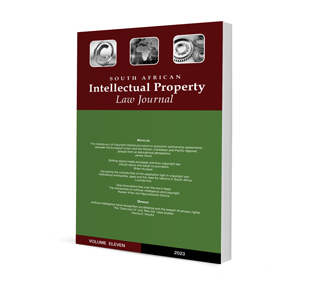
Navigating the complexities of the adaptation right in copyright law: Addressing ambiguities, gaps and the need for reforms in South Africa
Author Lucinda Kok
ISSN: 2521-2591
Affiliations: Lecturer, University of Pretoria
Source: South African Intellectual Property Law Journal, 2023, p. 42 – 71
https://doi.org/10.47348/SAIPL/v11/a3
Abstract
As a pervasive feature of modern society, the adaptation right in the context of infringement and fair dealing has frequently been a subject of heated debate for several years. However, the current Copyright Act 98 of 1978 does not adequately address either aspect. The power disparity between copyright owners and users makes it difficult for the user to determine when it is appropriate to pay for permission and when to use the work without permission, resulting in numerous legal debates over what is considered lawful or permissible use. Moreover, the complexities of copyright law and its application in the context of the various forms of adaptation set out in the Copyright Act (ie arrangement, transcription, translation and transformation) remain largely undefined, leaving those attempting to create a work of adaptation or resolve a dispute over one in a state of considerable uncertainty. Consequently, there are numerous gaps in South Africa’s legal system concerning adaptations and their role in legal proceedings. This is exacerbated by the absence of case law meant to provide clarification. Additionally, the exceptions and restrictions associated with the adaptation right are extremely limited. Blind SA v Minister of Trade, Industry, and Competition and the almost decade-long debate about the Copyright Amendment Bill indicate a need for reform in South Africa’s legal system concerning adaptations and their role in legal proceedings.